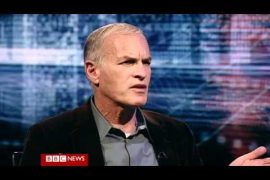The misappropriation of the term ‘human rights’ by political campaigners and the self-classification of various often opaquely-funded anti-Israel groups as ‘human rights’ organisations has not abated since the infamous events which overshadowed the Durban I UN conference over twelve years ago. 
The underlying principle of human rights is of course that they are – as it says on the packaging – universal, applying to every person regardless of gender, colour, religion, sexual orientation, wealth, ethnic background and so forth. Hence, it is actually quite easy to distinguish organisations which are truly interested in promoting the human rights of the Palestinian people from those who merely exploit the halo of the term ‘human rights’ in order to co-opt its associated legitimacy for a political campaign.
One simple litmus test for ‘pro-Palestinian’ organisations is the examination of their activity in the field of women’s rights. Do they speak out on subjects such as enforced dress codes and ‘modesty’ patrols, inheritance and child custody laws, domestic violence and lenient sentences for so-called ‘honour’ killings? Do they promote women’s education and financial independence? Or do they – as is now sadly so often the case in the ‘liberal’ West – regard issues such as polygamy, gender segregation, forced marriage and female genital mutilation as part of the untouchable ‘culture’ of a patriarchal society which their own cultural relativism prevents them from criticizing?
Some of the most disadvantaged women in Israel are to be found in the Bedouin sector. Despite being illegal under Israeli law, polygamy is still high in that sector and birth rates are the highest in the country. Even though considerable progress has been made regarding the number of years of education, the educational gap is still large for Bedouin women. Rates of women’s employment outside the home remain low, perpetuating the cycle of poverty.
One woman trying – and succeeding – to make a difference to the lives of Bedouin women is Amal Elsana Alh’jooj – herself the first Bedouin woman in Israel to attend university. Recently Amal was the recipient of an award recognizing her work and during the time she was in London to receive it, she was interviewed by the BBC for Radio 4’s ‘Woman’s Hour’ (from around 17:11 here) and for the BBC World Service programme ‘Outlook’ (from around 12:53 here).
In those two very interesting interviews Amal spoke movingly about her position as the fifth girl born to a family in which female babies are of lower value than male ones and of her mother’s fear that her birth would prompt Amal’s father to take another wife. She explained her strategies for making progress on the front of women’s employment in a patriarchal society and spoke of the violence directed towards her when she married outside her own tribe and towards her father when he allowed her to go to university.
All that, however, is of no interest whatsoever to the Palestine Solidarity Campaign which registered its dissatisfaction with the interview in a letter to ‘Woman’s Hour’ according to Amena Saleem who took to her keyboard to condemn the BBC for ignoring what she erroneously terms “ethnic cleansing” in its two interviews with Ms Alh’jooj.
The Palestine Solidarity Campaign is of course one of several organisations currently exploiting the Bedouin for its campaign of delegitimisation of Israel. It therefore comes as no surprise that the PSC regards Amal Elsana Alh’jooj’s award-winning work promoting the rights of Bedouin women as insignificant and undeserving of coverage by the BBC, because what really interests the PSC is clearly not the human rights of the Bedouin or the Palestinians, but one-issue political campaigning against Israel.
One can only hope that “senior BBC executives“ remember that the next time they are invited for a chat with PSC representatives.




